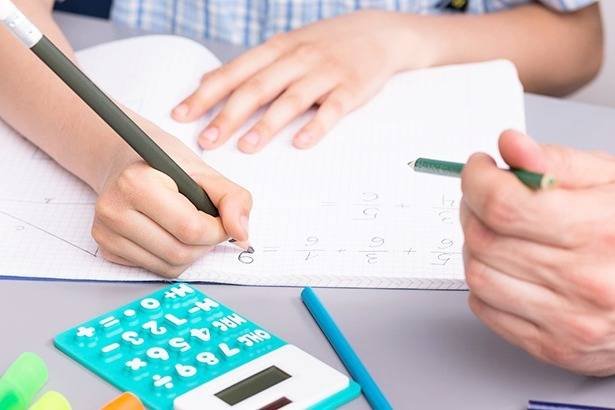Understanding the Signs and CausesAnxietyMathematics and its Solutions
Math AnxietyAlso known as the fear of math, this refers to a person’s anxiety about numbers and their ability to solve math problems. It is a common psychological condition where even simple calculations can cause panic in the presence of others. This fear is not limited to school-aged kids; university students and adults might experience it too. By reading this section ofSelMagzyou will learn what math anxiety is, where it comes from, and become familiar with its symptoms.
What is Math Anxiety?
Math anxiety refers to the feeling of fear and stress that many individuals experience when solving math problems. It affects people of all ages worldwide. Many students claim they dislike math, but for some, the issue goes deeper, leading them tonegative feelingssuch as a fear of failure, which can harm their ability to succeed.

Identifying Symptoms of Math Anxiety
Before trying to prevent math anxiety, it’s essential to correctly identify it, as understanding the signs and symptoms helps students address the issue.
Physiological Effects
Research shows that students with signs of math anxiety experience unusualangercold and sweaty hands, increasedheart ratestomach discomfort, and dizziness.
Lingering Feelings
When math isn’t a student’s strength, it’s easy to believe they’re bad at it and always will be. Once they accept this falsehood, they give up and lose motivation to improve their skills.

Intense Emotional Reactions
Math anxiety presents itself not only physiologically and cognitively but also emotionally. If you notice a student in math class showing signs ofstressand anger, or if they’re crying, they might be struggling with math anxiety. This is largely rooted in the misconception that the only way to excel in math is to answer questions quickly and accurately.
Negative Self-Talk
You may have noticed your child or student saying things like:
- I hate math
- I can’t solve math problems
- I will never be good at math
This negative talk can distract a student and foster an unpleasant belief about their ability in math, despite the complexity of the subject matter.
Poor Results
Due to their lack ofconfidencestudents are unlikely to answer math questions correctly or perform well on tests. Without practice, their overall performance declines, and worse, they start getting poor grades, which reinforces their identity as someone bad at math.

Avoidance
You will find that students with math anxiety try to avoid attending math classes on exam days, and during their studies, they likely show minimal interest in math. The most prevalent and distressing tendency among individuals with high math anxiety is to procrastinate and withdraw from class and even from taking exams.
No Response
How can anxiety inhibit our working memory when learning and problem-solving? Have you ever wondered how you can recall multiple items simultaneously? This part of human memory is called working memory. Imagine a student with math anxiety when you read a math problem aloud to the class; if they fail to respond in time, it causes them anxiety. Researchers suggest that these students, instead of focusing on the numbers and methods to solve the problem, become overwhelmed by their anxiety.
Feelings of Loneliness
The student feels like they are the only one who cannot find a solution, even if the problem is quite complex and difficult for all students.

Lack of Confidence
The student does not expect themselves to answer math questions correctly and relies on others for help in solving problems, indicating a complete lack of confidence in their math abilities.
Main Causes of Math Anxiety
Students may laugh after you answer a question incorrectly, or perhaps the teacher was unable to teach it effectively, or it could be due to negative attitudes from their parents about math. Many factors can negatively influence children’s views on math, and pinpointing a single cause is nearly impossible. Take a moment to think about your direct or indirect experiences with math anxiety and the factors that may have contributed to it.
Fear of Being Wrong
If a teacher or other students ridicule someone for giving an incorrect answer or laugh at them, it may provoke or worsen their math anxiety.

Negative Parental Attitudes
Research shows that parents’ feelings about math are one of the reasons for math anxiety in students. One parent may say, “I’m not good at math,” and if you aren’t good at math, it won’t matter. This sends a signal to children that they cannot succeed.
Additionally, children may view their parents as successful without being good at math, reinforcing the idea that they don’t need math skills.
Teacher Impact
Teachers can use various methods to influence students. Like parents, if they fear math or do not value it, this feeling gets passed on to their children. When a student struggles to understand concepts, they need a teacher who can help them grasp the material and adapt teaching strategies.
Lack of Emphasis on Comprehension
Teachers who prioritize memorization over understanding can harm many students, as solving math problems without trying to understand them makes it impossible to succeed, contributing to increased math anxiety.

Strategies to Overcome Math Anxiety
At the request of some of our users, we recommend strategies to cope with math stress and anxiety that you should definitely take advantage of.
Utilize Mixed Ability Grouping
This method refers to grouping peers with different abilities. Teachers who employ mixed ability grouping achieve better outcomes. Grouping students based on their abilities—strong with strong and weak with weak—can harm lower-level students as this exclusivity strengthens their negative perception of math. However, mixed ability grouping encourages higher-ability students to think more deeply about alternative solutions for those in “lower” groups.
Find a Strong Classmate
Having a classmate or friend who can assist you if you miss class or struggle to learn can be beneficial. This method not only aids learning but also enhances positive relationships.

Make Math Fun
Teachers use math games to increase children’s engagement. Moreover, they can turn math into a fun activity to motivate students to develop skills and mastery. Learning through play can reinforce that failure is not a setback or end result but an indicator that more effort is required to master skills or knowledge.
Never Consider Assignments as Optional
This is the most essential method by which students can master school concepts, so create the right time and place to complete your homework.
Encourage Students
Never underestimate the effect of encouraging words on a child. Researchers have found that those who receive encouragement have a significantly lower heart rate. Thus, instead of punishment, parents and teachers can motivate through rewards to enhance students’ learning and academic success.
Hire a Private Tutor

Researchers state that private tutoring sessions can help treat highly anxious children. An eight-week study involving 46 children aged seven to nine participating in 40 to 50 minutes of private math tutoring weekly showed a reduction in their math anxiety.
Reassess Anxiety
Parents and teachers are the most prominent figures in a child’s life, meaning they have the most influence on their upbringing. If either regularly expresses negative attitudes toward math, children come to believe that math ability is inherent, requiring extraordinary talents to succeed, which is not the case. People can assign another term to their sense of anxiety, such as excitement, as studies have shown that those who perceive anxiety as excitement perform better in singing, speak longer and more convincingly, and excel in math tests relative to others. Interestingly, making slight adjustments in attitudes leads to more positive outcomes.
Understand Concepts
Studies show that those who achieve the least success are those who utilize memorization strategies rather than comprehending concepts. Relying solely on memorization becomes a barrier and hinders growth, eventually producing a generation of students who are intellectually closed-minded. However, by substituting understanding for memorization, students grasp numeric and math skills sooner.
Take Time to Answer Questions

Math anxiety arises when students feel they must respond immediately because the questions don’t allow enough time, causing stress. Therefore, if teachers allocate more time for answers, their problems may alleviate significantly.
Practice Mindfulness
Studies on learning and individual differences reveal that breathing exercises can alleviate math anxiety, and when extremely anxious students engage in mindful breathing, they feel much calmer and perform better on time-sensitive tests. This mindfulness method may help students eliminate distractions.Express Your Emotions
You might wonder how expressing emotions is connected to math. In an experiment, psychologists asked students to record their thoughts and feelings shortly before starting a test. These students scored higher than others because writing can help students process their feelings and ultimately reduce math anxiety.







